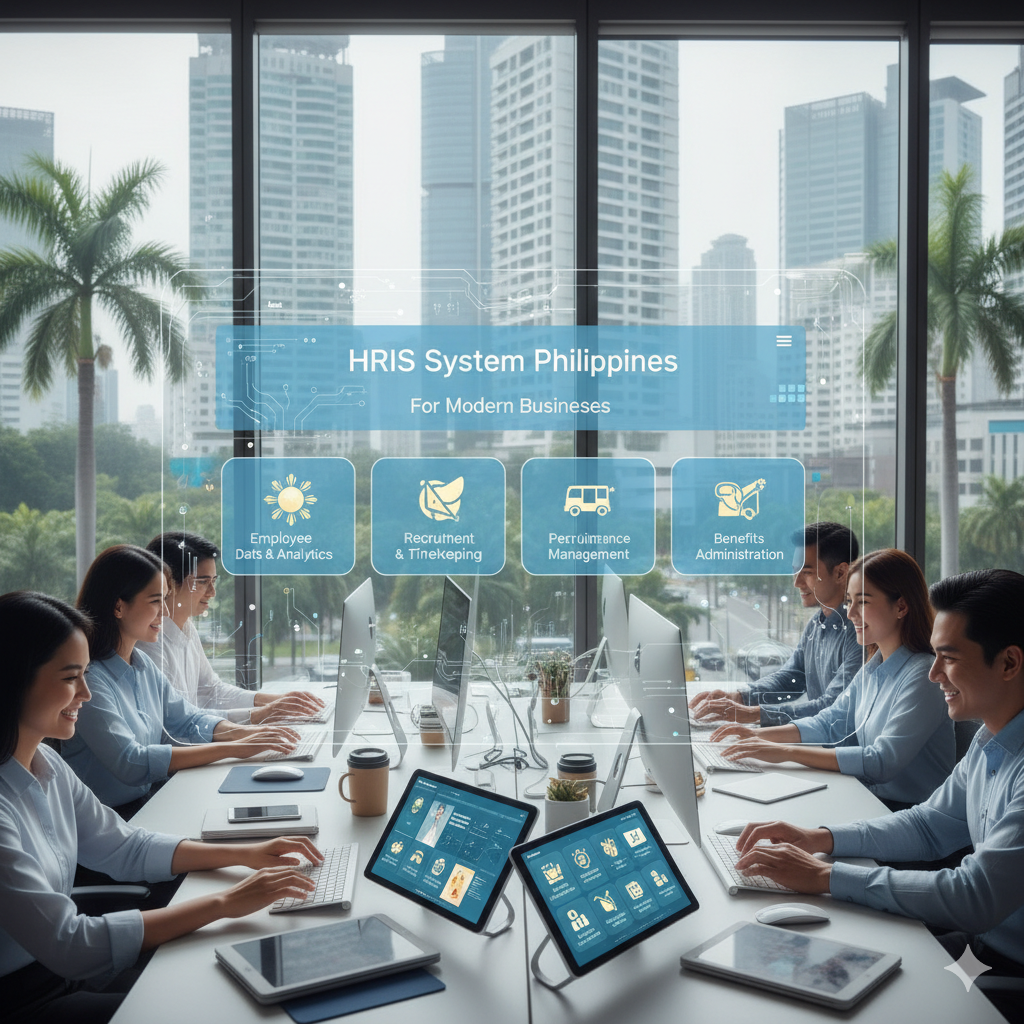In today’s fast-paced digital landscape, Filipino companies are shifting from manual HR processes to automated solutions. One of the most powerful tools driving this transformation is the HRIS system Philippines businesses now rely on to manage people operations more efficiently. Whether you’re a startup, SME, or large enterprise, adopting an HRIS can improve accuracy, reduce costs, and modernize the employee experience.
What Is an HRIS System?
A Human Resource Information System (HRIS) is software designed to automate and centralize HR tasks such as:
- Employee records management
- Timekeeping and attendance
- Payroll processing
- Recruitment and onboarding
- Performance evaluations
- Benefits administration
For businesses in the Philippines, an HRIS helps eliminate paperwork and human error while ensuring compliance with local labor laws.
Why Filipino Businesses Need an HRIS System
- Compliance With Philippine Labor Laws
Handling SSS, PhilHealth, Pag-IBIG, and BIR requirements manually increases the risk of errors. A local HRIS system automates government computations, deadlines, and reporting. - Reduced Manual Work and Errors
HR teams often spend hours on spreadsheets and repetitive tasks. HRIS automation cuts administrative work dramatically and reduces costly mistakes. - Improved Employee Experience
Features like employee self-service, mobile apps, and digital payslips make HR processes faster and more transparent. - Streamlined Attendance & Payroll
An HRIS integrates biometrics, schedules, and payroll rules, ensuring accurate salary calculations — a top priority for Philippine businesses. - Better Decision-Making With HR Analytics
Modern HRIS systems provide real-time data insights on turnover, attendance, productivity, and workforce trends.
Top Features to Look for in an HRIS System Philippines
When choosing an HRIS for your business, look for the following:
- Payroll Integration
Supports PH-specific requirements (SSS, PhilHealth, Pag-IBIG, BIR 2316, 1601C). - Time and Attendance Tracking
Biometric integration, shift scheduling, and overtime tracking. - Employee Self-Service (ESS)
Lets employees file leave, view payslips, update information, and more. - Recruitment and Onboarding Tools
Job posting, applicant tracking, digital onboarding. - Performance Management
Goal setting, evaluations, scorecards, and 360 feedback. - Cloud-Based Accessibility
Secure anytime, anywhere access — essential for remote and hybrid Filipino teams. - Analytics and Reporting
Dashboards for monitoring HR metrics and generating compliance reports.
Benefits of Using an HRIS System in the Philippines
✔ Increased HR Productivity
Automated workflows mean HR staff can focus on strategic tasks like talent development.
✔ Cost Savings
Less paperwork, fewer errors, and reduced overtime for HR teams.
✔ Enhanced Data Security
Modern HRIS platforms use encryption and secure cloud storage to protect employee data.
✔ Scalability
Whether you have 10 or 1,000 employees, an HRIS can grow with your organization.
✔ Business Continuity
Cloud systems ensure data is accessible even during calamities or system outages — essential in the Philippine environment.
How to Choose the Best HRIS System Philippines
Consider these factors before making a decision:
- Local Compliance Support
Choose a provider with updated PH government integrations. - Ease of Use
The interface should be intuitive for both HR admins and employees. - Customizability
Every Filipino business is unique — your HRIS should adapt to your policies, not the other way around. - Customer Support
Look for providers with dedicated local support teams and fast response times. - Integration Capabilities
Your HRIS should integrate with biometrics, accounting software, and other business tools. - Transparent Pricing
Select a system with clear, scalable pricing that matches your company size.
The Future of HRIS in the Philippines
As digital transformation accelerates, HRIS adoption in the Philippines is rapidly increasing. Expect more advancements such as:
- AI-driven talent analytics
- Automated compliance monitoring
- Mobile-first HR functions
- Advanced payroll and finance integrations
- Employee wellness and engagement tools
Businesses that adopt HRIS early gain a competitive advantage through efficiency and improved workforce management.
Conclusion
An HRIS system Philippines companies can rely on is essential for modernizing HR operations and staying competitive in today’s fast-evolving business environment. Whether you’re managing payroll, attendance, or recruitment, an HRIS provides the tools needed to streamline workflows, reduce human error, and enhance employee satisfaction.

